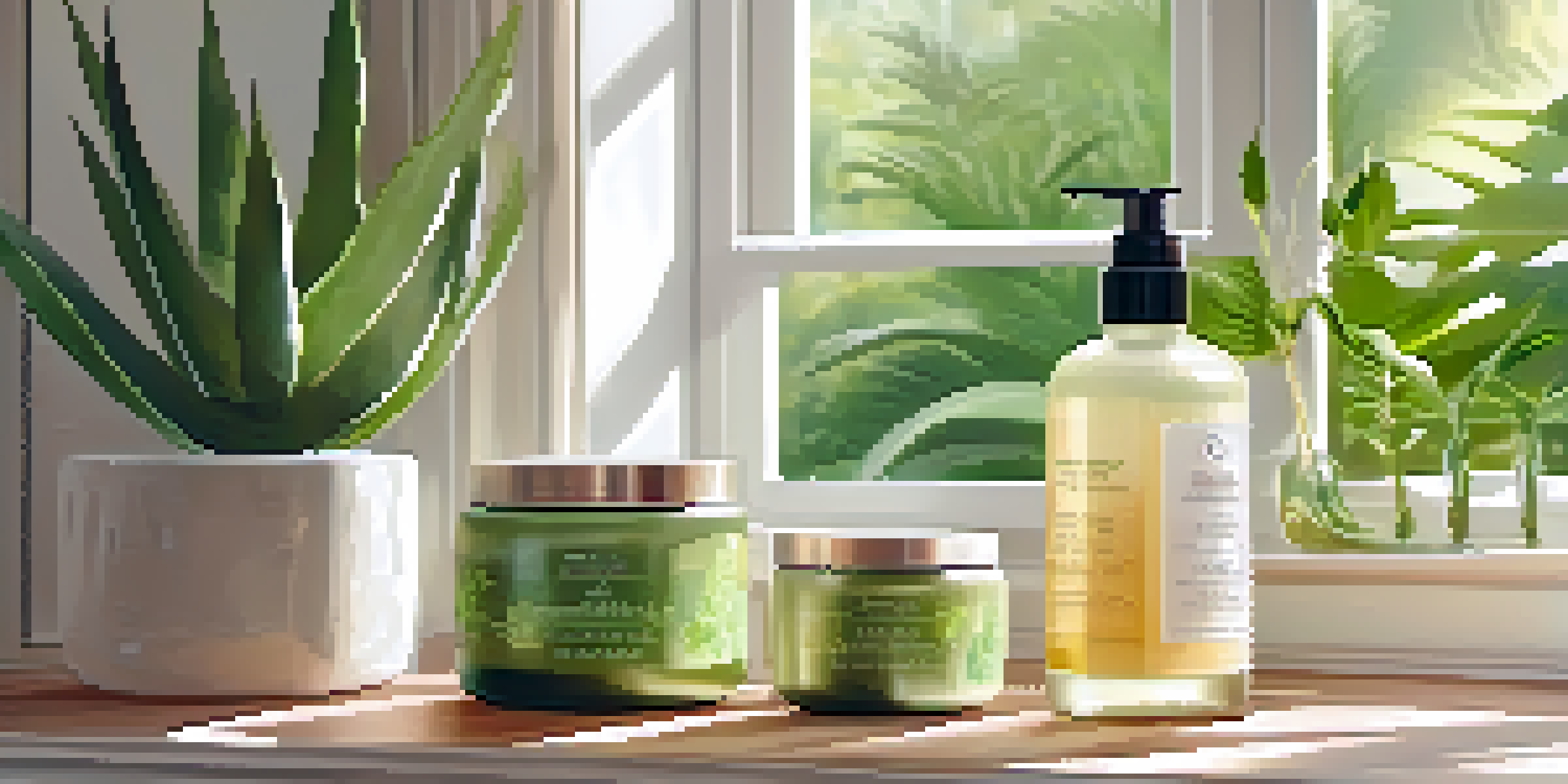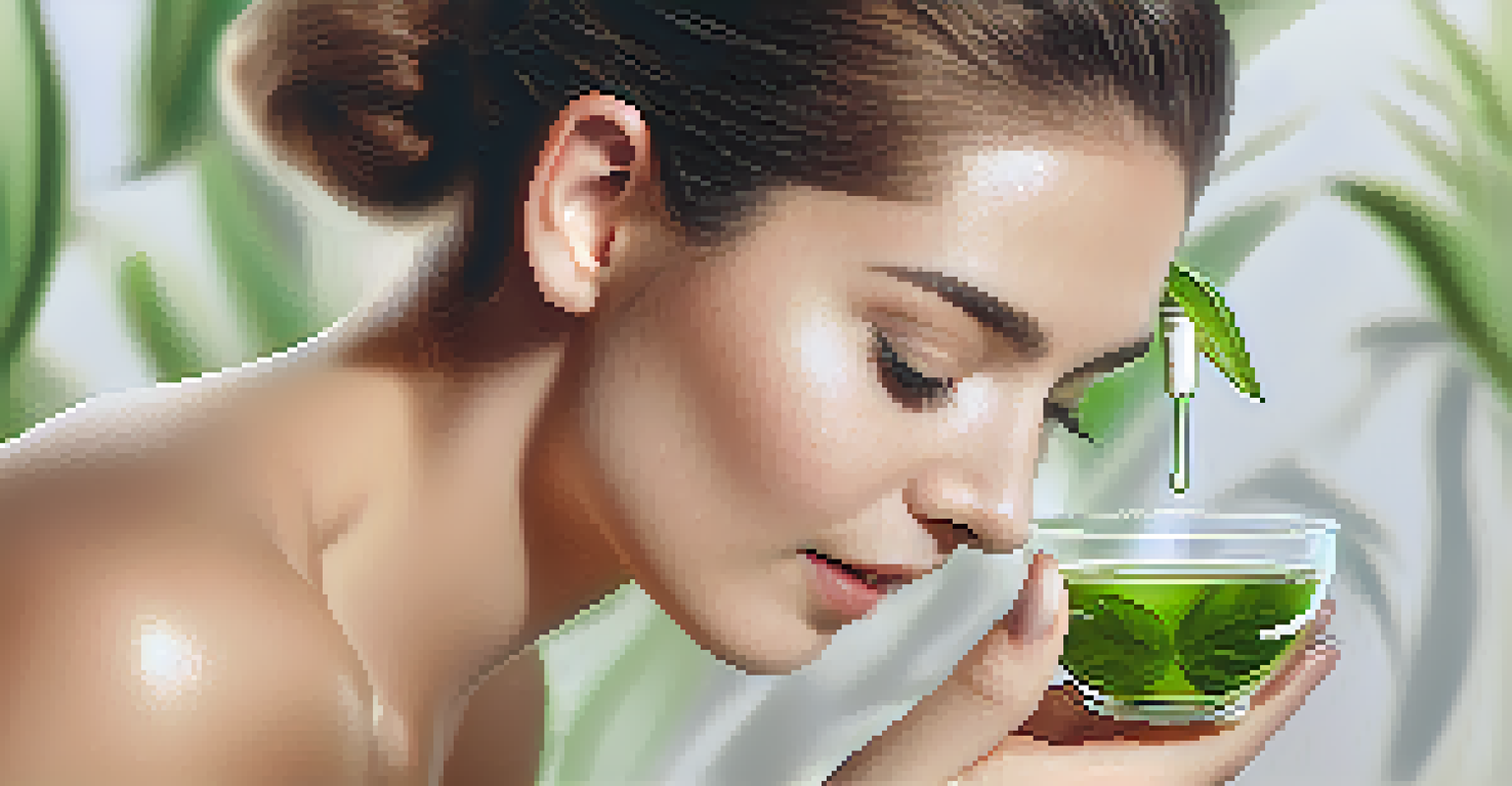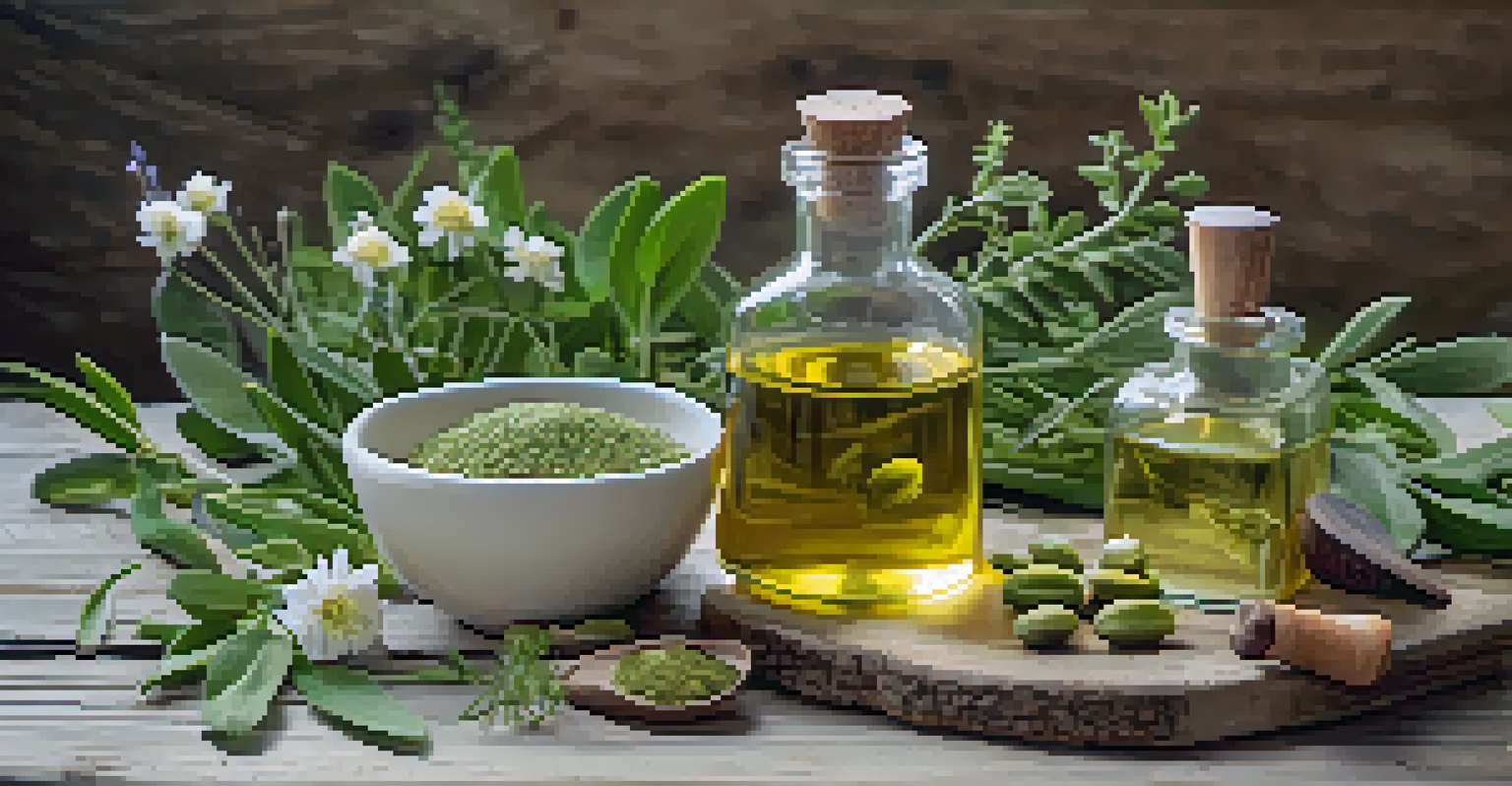Plant-Based Beauty: A Sustainable Approach to Self-Care

Understanding Plant-Based Beauty and Its Benefits
Plant-based beauty refers to skincare and cosmetic products made primarily from natural, plant-derived ingredients. These products not only nourish your skin but also promote a healthier planet. By choosing plant-based options, you reduce the carbon footprint associated with synthetic chemicals and packaging.
Nature does not hurry, yet everything is accomplished.
One of the key benefits of plant-based beauty is its gentleness on the skin. Many synthetic products contain harsh chemicals that can cause irritation or allergic reactions. In contrast, plant-based ingredients like aloe vera and coconut oil are known for their soothing properties, making them ideal for all skin types.
Additionally, plant-based beauty often emphasizes sustainability. Many brands focus on ethical sourcing, biodegradable packaging, and cruelty-free practices, ensuring that your self-care routine aligns with your values. This conscious choice reflects a growing trend towards responsible consumerism, where beauty and ethics go hand in hand.
The Rise of Sustainable Ingredients in Beauty Products
In recent years, there’s been a notable shift towards incorporating sustainable ingredients into beauty products. Ingredients like jojoba oil, shea butter, and essential oils not only offer remarkable benefits for skin health but are also harvested with minimal environmental impact. This shift signifies a movement towards a more holistic approach to beauty.

Sustainable ingredients often come from sources that prioritize biodiversity and conservation. For instance, fair trade practices ensure that communities benefit from the harvesting of these ingredients, fostering both economic growth and environmental stewardship. This creates a win-win situation for both consumers and producers.
Plant-Based Beauty is Eco-Friendly
Choosing plant-based beauty products helps reduce environmental impact by minimizing synthetic chemicals and promoting sustainable practices.
Moreover, the use of such ingredients can enhance your beauty routine. Many plant-based products are rich in vitamins, antioxidants, and fatty acids that nourish the skin deeply. By integrating these sustainable ingredients into your self-care rituals, you’re not just pampering yourself; you’re also supporting a healthier planet.
Popular Plant-Based Ingredients and Their Benefits
Some of the most popular plant-based ingredients include argan oil, green tea extract, and rosehip oil. These ingredients are celebrated for their skin-loving properties. For example, argan oil is rich in vitamin E and fatty acids, making it a fantastic moisturizer that helps combat dryness and improve skin elasticity.
The greatest threat to our planet is the belief that someone else will save it.
Green tea extract is known for its powerful antioxidant properties, which can help reduce signs of aging and protect against environmental damage. This ingredient is often found in serums and masks, providing a refreshing boost to your skincare routine. Just imagine applying a product that not only feels good but also helps your skin fight off free radicals!
Lastly, rosehip oil is a favorite for its ability to promote skin regeneration and even out skin tone. Its high concentration of essential fatty acids supports skin hydration and elasticity, making it a go-to for anyone looking to achieve that coveted glow. Incorporating these ingredients into your daily regimen can make a significant difference in your skin's health.
How to Transition to Plant-Based Beauty Products
Transitioning to plant-based beauty products can be an exciting journey. Start by reviewing your current skincare and makeup products, and identify which ones contain synthetic ingredients. You might be surprised by how many options are available that prioritize plant-based formulations.
Next, look for brands that are transparent about their ingredient sourcing and environmental practices. Many companies now provide detailed information on their websites, helping you make informed choices. This research can also lead you to discover new favorites that align with your values.
Gentle on All Skin Types
Plant-based ingredients are often gentler on the skin, making them suitable for various skin types and reducing the risk of irritation.
Finally, take your time to test new products. Everyone’s skin is unique, and what works for one person may not work for another. Consider starting with sample sizes or travel kits to find the perfect match for your skin type while embracing a more sustainable approach to beauty.
The Environmental Impact of Conventional Beauty Products
Conventional beauty products often come with a hefty environmental cost. Many contain harmful chemicals that can pollute water systems when washed off, affecting aquatic life and ecosystems. Additionally, the production processes for synthetic ingredients can be resource-intensive, contributing to pollution and waste.
Packaging is another significant concern. Many conventional beauty products are packaged in non-recyclable plastics, which contribute to the growing issue of landfill waste. By switching to plant-based options, many brands are adopting eco-friendly packaging solutions, such as biodegradable materials or refillable containers.
Understanding the environmental impact of your beauty choices empowers you to make more sustainable decisions. By opting for plant-based products, you can help reduce pollution and support brands that are committed to protecting the planet. Every small change in your beauty routine can lead to a more significant positive impact on the environment.
The Role of Certifications in Plant-Based Beauty
Certifications play a crucial role in the plant-based beauty industry, helping consumers identify products that meet certain ethical and sustainability standards. Look for labels such as 'cruelty-free', 'organic', or 'vegan', which indicate that a product adheres to specific guidelines. This can simplify your shopping experience and build trust in the brands you choose.
For example, cruelty-free certification ensures that no animal testing was involved in the product's development. This is important for those who prioritize animal welfare in their beauty choices. Similarly, organic certifications often signify that the ingredients were grown without harmful pesticides or fertilizers, making them safer for your skin and the planet.
Certifications Ensure Ethical Choices
Certifications like 'cruelty-free' and 'organic' help consumers identify ethical beauty products, ensuring that they support sustainable practices.
By choosing certified products, you can feel confident in your purchases. It not only supports ethical practices in the beauty industry but also encourages brands to maintain high standards for sustainability. This collective effort can lead to substantial change in how beauty products are created and consumed.
Incorporating Plant-Based Beauty into Your Daily Routine
Incorporating plant-based beauty into your daily routine can be both enjoyable and rewarding. Start with simple steps, like replacing your moisturizer or cleanser with a plant-based alternative. This allows you to experience the benefits without a complete overhaul of your routine.
Consider creating a self-care ritual that highlights these products. For instance, set aside time each week for a face mask using a plant-based formula. This not only nourishes your skin but also provides a moment of relaxation in your busy schedule, reinforcing the idea that self-care is essential.

Finally, don’t forget to share your journey with friends and family! By discussing your experiences with plant-based beauty, you can inspire others to make similar changes. Together, you can create a community focused on sustainability and self-care, making the world a little greener one product at a time.